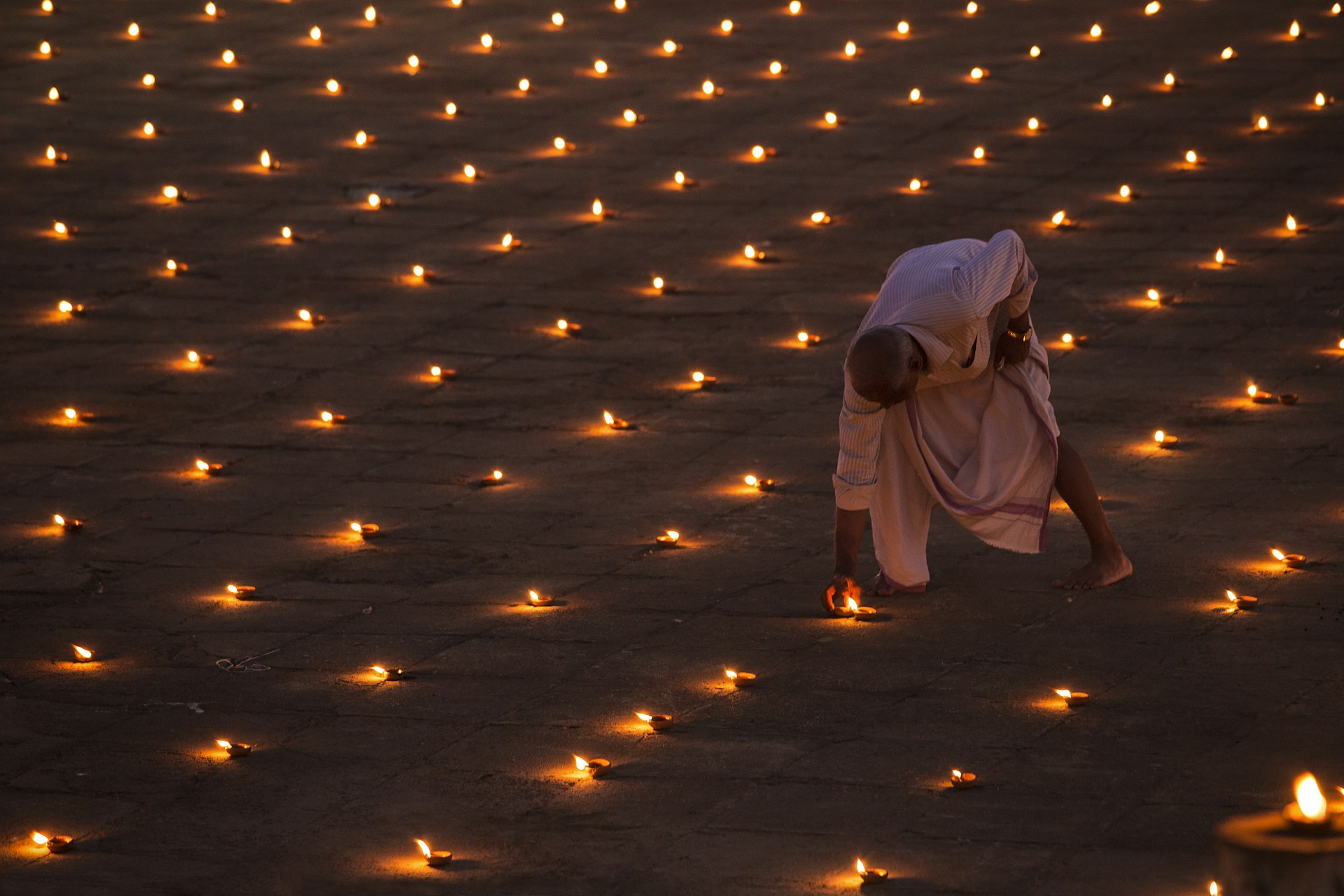If there’s one place that knows how to celebrate a festival, it’s India. From grand city events to simple village melas (fairs), India’s jam-packed festival calendar is as rich and diverse as its traditions and topography.
A star attraction on the Indian festival stage is Diwali – a joyous celebration that, broadly speaking, celebrates the triumph of good over evil. The festival’s name roughly translates to ‘row of lamps/lights’ – which is why Diwali is widely known as the Festival of Lights.

When is Diwali?
The festival takes place over a period of five days on auspicious dates during the end of Ashvin/start of Kartika – the Hindu lunar calendar months which equate to the Gregorian calendar months of October/November. This year Diwali will be celebrated from Thursday, November 4, 2021.
While the festival undeniably takes centre stage, there is a particularly distinct air of happiness – and preparation – in the lead up to Diwali. Houses and shops are given a rigorous spring clean before being decorated with fairy lights, patterned lanterns and colourful rangolis/kolams (propitious rice-paste/powder/chalk designs adorning thresholds). The streets in pre COVID times teemed with shoppers keenly stocking up on everything from new clothes and festive household decorations, to gifts for family, friends.

The most popular gift, by a long shot, is mithai (Indian sweets), with ornately packaged dried fruits and nuts also a hot seller. Shops are filled with a spectacular array of mithai specially prepared for this festival, from thickly cut squares of barfi (fudgelike sweet, often coated with a thin film of edible silver leaf) – old favourites include pista (ground pistachio nut) and kaaju (cashewnut) – to soft syrupy gulab jamuns (deep-fried balls of dough) and spongy rasgullas (sweetened cream-cheese balls flavoured with rose-water). Indeed, if there’s ever a time to experience India at its sweet – and convivial – best, it’s during Diwali.
Diwali’s religious significance
Diwali is a national Hindu festival that is also embraced by other religious denominations including the Sikhs and Jains. As such, it entails religious and regional variations in the way it is celebrated. For Jains, Diwali signifies the attainment of moksha (liberation from the cycle of life and death) by Mahavira (the 6th century BC founder of Jainism’s central tenets). For Sikhs, Diwali largely denotes the 1619 release of Guru Hargobind (the sixth of Sikhism’s 10 gurus), along with 52 others, who had been detained in the Gwalior Fort by the Mughal emperor Jehangir.
When it comes to India’s major religious community, the Hindus, Diwali commemorates the victory of Lord Rama (King of Ayodhya, according to sacred Hindu texts, and also a prominent deity) over Ravana (a powerful demon) and his triumphant return to the kingdom after a period of exile. Keen to make Lord Rama’s homecoming as swift and safe as possible, his jubilant subjects illuminated the way with masses of twinkling diyas (earthenware oil lamps). It is for this reason the lighting of diyas has become a key component of the Diwali festival.

It also symbolises the replacement of darkness (ignorance) with ‘inner’ light – garnered via the pursuit of knowledge and spiritual practices. Indeed, spirituality lies at the heart of Diwali, with devotees specifically seeking blessings from two prominent Hindu deities: Lakshmi, the goddess of wealth and Ganesh, the elephant-headed god of good fortune and auspicious beginnings. Worshippers pray for prosperity and well-being for the year that lies ahead, with fireworks and crackers and lanterns.

